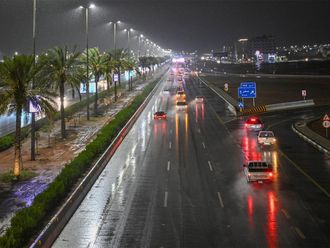Massachusetts: Gas-line explosions tore through several Massachusetts communities on Thursday, setting homes on fire, forcing evacuations in three towns and leaving at least 10 people hospitalised.
Hours later, city officials were still unsure exactly what caused the blasts.
Amanda Morera and Nick Kennedy of North Andover said they watched a neighbour stumble out of his house after a small explosion on Thursday afternoon. The man was not injured, they said, but looked stunned.
“He was wicked shocked,” Morera said. “Who wouldn’t be?”
The couple were still deciding whether to leave after the emergency workers told them they were better off elsewhere. They said they were probably going to spend the night with a family member in Haverhill.
State police received between 60 and 100 reports of structure fires and gas explosions in Lawrence, North Andover and Andover on Thursday afternoon.
Fire and police departments from neighbouring areas sent assistance. Among the officers were Methuen Police Chief Joseph Solomon, who said that there were so many fires “you can’t even see the sky,” according to Western Massachusetts News.
At least 8,000 customers of Columbia Gas in the Merrimack region were ordered to leave their homes immediately and the National Grid electric company quickly announced plans to cut off all related power to halt the spreading gas.
“If you have not evacuated, you have to go. Don’t wait for there to be a fire. Trust us when we tell you, if you stay in your homes, you are at risk,” said Dan Rivera, mayor of Lawrence, at a news conference on Thursday. “Get out of your house and go north of the river.”
Concerned with public safety, local authorities were unable to offer information about when residents would be cleared to return home. Massachusetts Gov. Charlie Baker, who called the power company’s response “adequate,” concluded the news conference with two questions he wanted answered: When can people whose homes didn’t burn return? And when can people have power back on?
Andover resident Mac Daniel said he was cooking tacos for dinner when he got the first warning around 5pm to turn off his gas. A second message a few minutes later told him to evacuate the home he shares with his 16-year-old son.
“Everybody was suddenly milling about outside of their homes, trying to figure out what to do and where to go,” said Daniel, a communications consultant. As he and his son left, he said, he saw emergency vehicles from at least a half-dozen towns, including from over the state line in New Hampshire. Walking on Main Street in Andover, he said, he could see plumes of black smoke from nearby Lawrence. “That’s a city that’s seen really, really hard times, and to have something like this happen is horrible,” he said.
He and his son went to stay with his ex-wife on the other side of town. Electricity had been cut off to her house, too, but because she doesn’t have gas service, she did not have to evacuate.
“We’re in the dark, candles burning,” he said. “People are just kind of holing up where they can. The big question we’re all asking is how did this happen? How can 100 homes suddenly explode? We’ll find the answers, but it’s very, very strange.”
Gas line dangers
Billows of black smoke are what first alerted Phil DeCologero, a North Andover resident and chairman of its board of selectmen, to the emergency. The town, he told The Washington Post, was swarmed with fire engines, buzzing helicopters and wailing sirens.
“More than a dozen houses in North Andover went up in flames,” said DeCologero, including one located across from a multifamily house attached to a day-care Centre. “We’re a 30,000 person town, 27 square miles. Given the number of fires, no municipality twice our size would be able to absorb that kind of catastrophe all at once.”
The Massachusetts State Police dispatched troopers earlier to secure the affected areas and help traffic snarled by panicked residents fleeing their neighbourhoods during the evening rush hour. Off- and on-ramp highway exits were also closed to aid in the evacuation.
Lawrence General Hospital is treating 10 patients injured in connection with the explosions, Jill McDonald Halsey, chief of marketing and communication, told The Washington Post. “We are in emergency management activation mode and are ready for any more that come.”
The Columbia Gas company had announced earlier on Thursday that it would be upgrading gas lines in neighbourhoods across the state, including the area where the explosions happened. Later Thursday, electric company National Grid announced plans to cut off all electricity in affected areas. Local state schools will also be closed on Friday.
Natural gas pipelines can explode for a number of reasons, said Glen Stevick, who holds a doctorate in mechanical engineer and is a consultant at Berkeley Engineering and Research. Pipelines can be damaged during construction or they can be old, ill maintained and have structural flaws.
A pipe that’s in good shape should be able to handle twice the strength it normally operates, he said. Still, The Police announced that gas lines were being depressurised by Columbia Gas after Thursday’s explosions.
“Most pipes are expected to take more than three times the pressure that they operate at, but over time there can be damage that weakens the pipes,” Stevick said. “It’s possible there’s some reason to increase pressure. Usually, that means there are areas they suspect the pipe might be experiencing corrosion or it’s very old. If you keep a good database of your pipes and periodically hydro test it’s the safest way to transport any fuel but it does take some diligence.”












